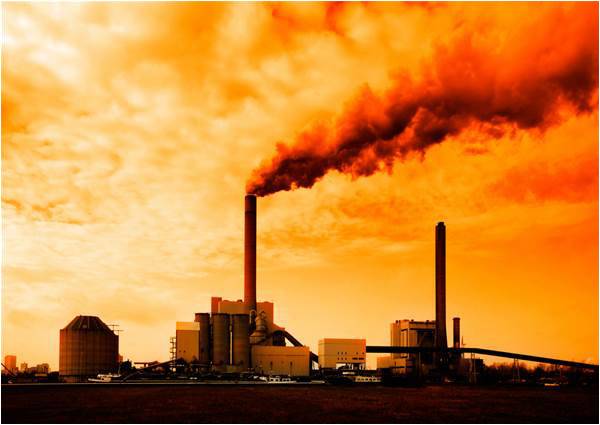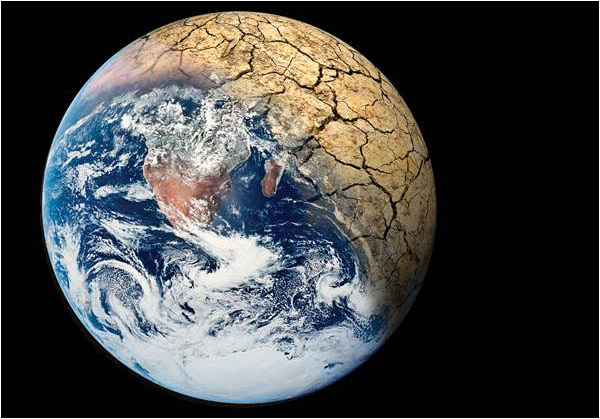
There is so much wrong in this country that climate and the environment are issues that almost sound like fashionable imports to most Pakistanis. But we ignore this very real problem at our own peril.
Take the fact that the last 12 years from 2000-2012 have been among the 14 warmest years since 1879. Or that the year 2012 was the 36th year globally, that we saw temperatures above the 20th century average.
Startling proof of global warming taking place all over the world was recently put in front of the audience at the 3rd climate change conference here in Karachi organized by Habib University, which included luminaries such as Dr Bruce A. Mccarl from the Texas A&M university & Dr Ilan Chaby from IASS in Germany; a welcome change from the usual topics that face us as a society in the difference seminars and conferences attended by Karachiites.
Several pertinent points were raised in the Q&A sessions at the end of each speaker’s talk as well as in the roundtable discussion at the end. However perhaps the most biting was a query by an environmental blogger who asked how Pakistanis could even begin to discuss the dangers of our rapidly changing environment when we even blame the weather on the unseen hands that forever seem to be running our destiny.

This is not by any means a shallow thought as I cannot recall how many times we have heard of the dreaded “HAARP” tech being employed by superpowers in the aftermath of our floods or used to unleash more hell on Pakistanis in the form of earthquakes when we ‘refuse to kowtow to foreign agendas’. Ludicrous theories to think of in the greater picture of our region where since 2013, 500 people have perished in India just because of the ongoing heat wave, or the alarming increase in sea levels in Maldives and beyond, and unnatural variations in the flow of rivers, all of which we are ready to put on the shoulders of a greater conspiracy instead of the effect of “human emissions” known as greenhouse gases which are trapping heat emitted from the surface of our earth and not letting it pass into space. Therefore making the earth hotter, varying temperatures and creating anomalies which we then fall prey to, such as typhoons and floods.
How does one cut down on GHG (greenhouse gas) emissions? Population control is obviously the first essential step, easier said than done though. If Pakistan does not want to claim the top spot (it is currently at number 3) in the climate charts of sensitive nations, we need to make less babies to conserve our already scarce resources. But that is a humungous task a government already besieged by religious extremists is loath to touch.
On a personal level, we can make small personal changed to our lifestyles to contribute less to the world’s carbon emissions – eat locally grown vegetables and fruits more, thus cutting down on fossil fuel usage that occurs when goods are imported to feed domestic needs. We can also try to buy products that are energy-star compliant or consume less energy by taking our computers and phones off the charger when they are at a 100%. Basically anything which can save any amount of electricity energy or resources that is not renewable easily will help. Even simple steps such as buying more durable goods to save on the cost of buying the same product again and again is useful.
First and foremost however, in my opinion, is more discussion on this subject. We need more conferences like this one and for people to be jolted out of the sleep they seem to fall into unless “politics” or “cricket” is on the table in this country.
It’s high time our government came down heavily on tragedies like our rapidly decreasing forests, and made certain standards mandatory for the motor industry to adhere to. That and a revival of the consumer rights in Pakistan may lead to better quality of products and higher standards of manufacturing to slow down consumption. We cannot forever be a consumer society because in the end the consumption will consume us whole. We must take heed now. We have less time then we think.
Take the fact that the last 12 years from 2000-2012 have been among the 14 warmest years since 1879. Or that the year 2012 was the 36th year globally, that we saw temperatures above the 20th century average.
Startling proof of global warming taking place all over the world was recently put in front of the audience at the 3rd climate change conference here in Karachi organized by Habib University, which included luminaries such as Dr Bruce A. Mccarl from the Texas A&M university & Dr Ilan Chaby from IASS in Germany; a welcome change from the usual topics that face us as a society in the difference seminars and conferences attended by Karachiites.
Several pertinent points were raised in the Q&A sessions at the end of each speaker’s talk as well as in the roundtable discussion at the end. However perhaps the most biting was a query by an environmental blogger who asked how Pakistanis could even begin to discuss the dangers of our rapidly changing environment when we even blame the weather on the unseen hands that forever seem to be running our destiny.

This is not by any means a shallow thought as I cannot recall how many times we have heard of the dreaded “HAARP” tech being employed by superpowers in the aftermath of our floods or used to unleash more hell on Pakistanis in the form of earthquakes when we ‘refuse to kowtow to foreign agendas’. Ludicrous theories to think of in the greater picture of our region where since 2013, 500 people have perished in India just because of the ongoing heat wave, or the alarming increase in sea levels in Maldives and beyond, and unnatural variations in the flow of rivers, all of which we are ready to put on the shoulders of a greater conspiracy instead of the effect of “human emissions” known as greenhouse gases which are trapping heat emitted from the surface of our earth and not letting it pass into space. Therefore making the earth hotter, varying temperatures and creating anomalies which we then fall prey to, such as typhoons and floods.
How does one cut down on GHG (greenhouse gas) emissions? Population control is obviously the first essential step, easier said than done though. If Pakistan does not want to claim the top spot (it is currently at number 3) in the climate charts of sensitive nations, we need to make less babies to conserve our already scarce resources. But that is a humungous task a government already besieged by religious extremists is loath to touch.
On a personal level, we can make small personal changed to our lifestyles to contribute less to the world’s carbon emissions – eat locally grown vegetables and fruits more, thus cutting down on fossil fuel usage that occurs when goods are imported to feed domestic needs. We can also try to buy products that are energy-star compliant or consume less energy by taking our computers and phones off the charger when they are at a 100%. Basically anything which can save any amount of electricity energy or resources that is not renewable easily will help. Even simple steps such as buying more durable goods to save on the cost of buying the same product again and again is useful.
First and foremost however, in my opinion, is more discussion on this subject. We need more conferences like this one and for people to be jolted out of the sleep they seem to fall into unless “politics” or “cricket” is on the table in this country.
It’s high time our government came down heavily on tragedies like our rapidly decreasing forests, and made certain standards mandatory for the motor industry to adhere to. That and a revival of the consumer rights in Pakistan may lead to better quality of products and higher standards of manufacturing to slow down consumption. We cannot forever be a consumer society because in the end the consumption will consume us whole. We must take heed now. We have less time then we think.

